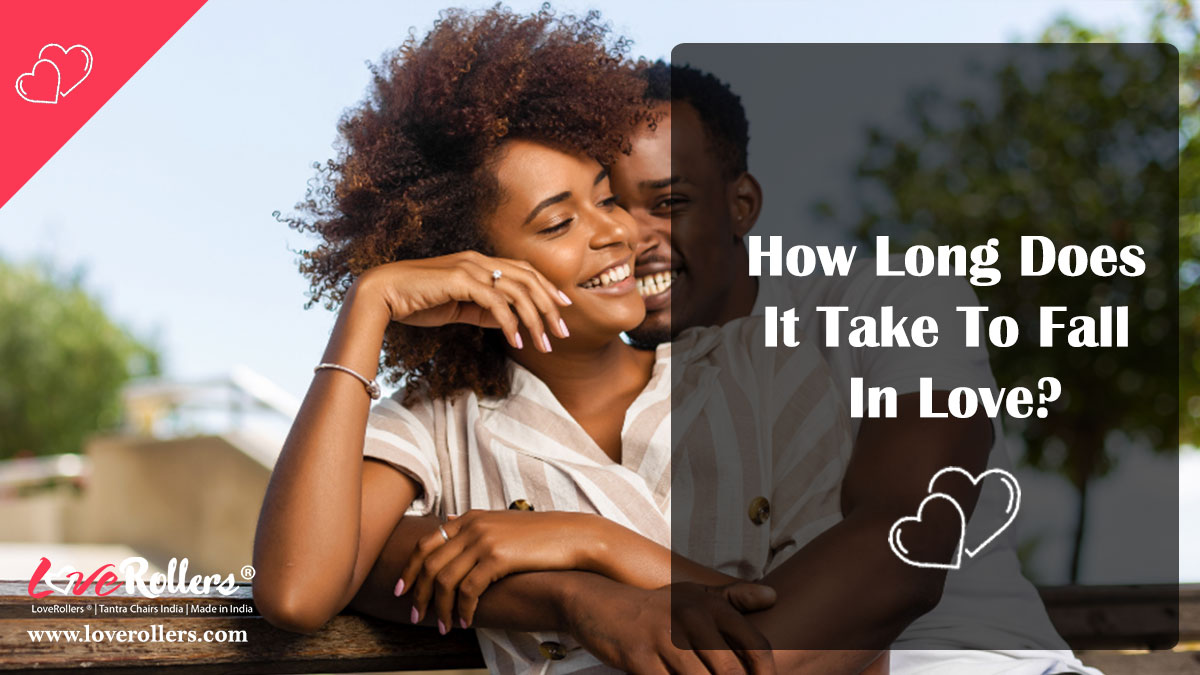Regardless of your relationship situation, wondering how long it takes to fall in love is quite normal. What’s crucial, though? The founder of the Hawaii Center for Sexual and Relationship Health, clinical psychologist, and sex therapist Janet Brito, PhD, says that you should be aware that falling in love is unique for *everyone*.
According to Brito, everything depends on the people involved, their situations, and their surroundings. Therefore, just because one person falls in love suddenly doesn’t guarantee that others will experience the same thing, you know? Despite this, it still isn’t any easier to tackle the subject of falling in love (or desire). For example, is it a crush or sexual tension? What are the telltale signals that you’re in love?
First Off, What Exactly Is “Falling In Love” Anyway?
Make sure you understand what it means to “fall in love” in the first place before getting into the details. According to Jenni Skyler, PhD, director of The Intimacy Institute, “falling in love is a journey of discovering and coming to appreciate a full human’s values, philosophies, history, problems, and quirks.” In other words, falling in love is the act of experiencing closeness and acceptance of a person’s “entire existence,” albeit it can also feel overpowering and overwhelming.
People have been learning about and thinking about love since the beginning of time. One study from 2011 that was published in the Journal of Personality and Social Psychology found, among other things, that males think about confessing their love when they are approximately 97 days into a relationship, whereas women can take about 149 days.
Men tend to fall in love more quickly than women in heterosexual relationships, even though they may not express it verbally, according to a 2010 study published in the journal Evolutionary Psychology. According to a 2008 study in the Journal of Gay and Lesbian Research, professions of love were exchanged between partners by about six months into relationships between two people who identified as women.
Having said that, keep in mind that additional studies are available that disprove these theories, making the body of evidence generally very ambiguous and outdated. According to experts, everyone’s experience with falling in love is unique, explains Brito.
What Could Cause You To Fall In Love Quickly?
According to Skyler, other elements may affect how soon you fall in love.
Your Method Of Attachment
First of all, according to Skyler, “people with nervous attachment types fall in love fairly easily.” According to Skyler, those with an anxious attachment style may feel as though they “need” their partner to feel comfortable. As a result, they may be more receptive to falling in love and starting a relationship than most people. According to Skyler, people with an avoidant attachment style typically steer clear of those touchy-feely feelings. “They have a wall and a block up. They can still fall in love, but maybe not as quickly or right away,” she says.
Do You Have Sex?
Yes, whether or not you’ve already had sex with someone might affect whether or not you fall in love with them. (Or folks!) Adding intercourse to the mix, even if you’re cool with casual sex, can help you fall in love with someone more quickly since it increases the level of closeness and can help you get closer to the big “L,” according to Skyler. But keep in mind that everyone is unique.
They Serve As A Parental Reminder.
According to Skyler, when someone makes us unconsciously think of our parents, we typically fall in love rapidly. Why? You may feel more at ease and at home with this person than you actually are, which might hasten the process of falling in love.
Okay, But What About Falling In Love?
Although it’s rare, falling in love at first sight, is conceivable. In most cases, what individuals mistakenly think of as ‘love at first sight’ is simply sexual attraction, according to Skyler. According to Skyler, this attraction sometimes results in the person you’re drawn to becoming your spouse, which greatly adds to the “love at first sight” phenomenon.
However, some research suggests that within a fifth of a second of meeting someone, the brain’s love-related neural networks can start to fire, as reported in a study published in the Journal of Sexual Medicine. According to additional research published in the Journal of Neuroscience, people snap judgments about someone’s attractiveness in a matter of seconds. Does this match the definition of “true love” at first sight? Not precisely, but it demonstrates the possibility of developing a strong attraction to someone immediately.
Overall, everyone is different regarding how long it takes to fall in love, so Brito advises not to worry about timing and concentrate on the relationship itself instead. K?

